Choosing the Right Senior Care Service for Your Loved Ones

Choosing the right senior care service for your loved ones can feel overwhelming. With various care options available, it’s essential to understand each type of service and assess your loved one's specific needs. This article will guide readers through evaluating potential care providers, comparing costs and insurance options, and the critical role of the family in these decisions. By addressing these aspects, families can confidently choose the best care solution, ensuring their loved ones receive the support and therapy they need. For personalized assistance, feel free to contact us at the Care Concierge.
Key Takeaways
• Understanding various senior care options ensures families provide adequate support for their loved ones
• Tailored home care services promote independence while giving necessary assistance to seniors at home
• Encouraging family involvement fosters better decision-making regarding senior care options and overall well-being
• Assessing daily living activities helps determine the level of care required for seniors
• Maintaining open communication with care providers is essential for quality care and family involvement.
Identifying the Different Types of Senior Care Services
Understanding the various senior care options is essential for families looking to provide the best support for their loved ones. This section will outline home care services that offer health care in familiar settings, explore assisted living facilities, evaluate nursing homes, and discuss continuing care retirement communities. For more information, contact us. Specialized memory care services will also be recognized for those needing specific attention related to conditions like dementia. Visit the care concierge to learn more.
Understanding Home Care Options
Home care services offer flexibility and comfort for seniors who wish to receive assistance in their own homes. These services often involve a caregiver providing personalized support that can range from daily activities to medical care, which may include visits from a registered nurse. Organizations such as AARP encourage families to consider home care as a viable option to maintain the health and well-being of their loved ones, ensuring they receive care in familiar surroundings.
Families can tailor home care to meet the specific needs of the patient. This may include help with household tasks, medication management, or companionship. Having a trained caregiver present can provide peace of mind for both the patient and their family members, knowing that the senior is receiving appropriate support while maintaining their independence. Home care services are increasingly recognized as a valuable solution in the diverse landscape of senior care options.
Exploring Assisted Living Facilities
Assisted living facilities provide a supportive community for seniors who require assistance with daily activities but do not need the intensive medical care offered in nursing homes. These communities typically offer services such as help with hygiene, meals, and medication management. Families need to understand the fee structure and contracts associated with these facilities, as costs can vary significantly based on the level of care required and the amenities provided.
Many assisted living communities also accept Medicaid, which can alleviate some financial burdens for families. In these facilities, the focus is on promoting independence while ensuring that residents receive the support they need. Families should visit potential communities to assess the environment, staff interactions, and available services, ensuring that their loved one will thrive in a safe and engaging setting.
Evaluating Nursing Homes
Nursing homes serve as a critical option for families seeking care for loved ones requiring assistance with activities of daily living. These facilities cater to seniors who may have chronic diseases or conditions necessitating round-the-clock support. Families need to assess the quality of care offered, including the availability of physicians who can manage medication and provide routine health assessments, ensuring that residents maintain a healthy lifestyle.
When evaluating nursing homes, it is essential to observe the interactions between staff and residents, which can greatly impact the well-being of individuals in their care. Families should inquire about the types of activities available that promote engagement and socialization, as a supportive community can significantly enhance the quality of life for seniors. Conducting thorough research and visiting potential nursing homes can lead to informed decisions that prioritize the health and happiness of loved ones.
Learning About Continuing Care Retirement Communities
Continuing care retirement communities (CCRCs) offer a distinctive approach to senior living by combining various levels of care on a single campus. This arrangement supports aging in place, allowing residents to transition from independent living to assisted living or nursing care as their needs change over time. By providing a continuum of care, CCRCs can enhance the quality of life for seniors, ensuring they receive appropriate support while maintaining their independence.
These communities often include amenities such as transportation services, recreational activities, and health care resources, all aimed at fostering socialization and engagement among residents. For families concerned about financial challenges, understanding the fee structure—and potential financial assistance options—can help alleviate worries about poverty affecting their loved ones' living situations. CCRCs provide a reliable, long-term solution that prioritizes comfort, convenience, and care for seniors in one integrated setting.
Recognizing Specialized Memory Care Services
Specialized memory care services focus on providing tailored support for individuals affected by conditions such as Alzheimer's and other forms of dementia. These services often involve trained caregivers who understand the unique challenges associated with memory loss. Families should inquire about the training of staff, including whether they conduct thorough background checks on all personnel, ensuring that their loved ones receive quality care in a secure environment.
Many memory care facilities also employ unlicensed assistive personnel who are specially trained to assist residents in daily activities while promoting their quality of life. Payment options for these services can vary, so families must clarify the financial implications and any possible insurance coverage. By taking these factors into account, families can make informed decisions that prioritize their loved one's well-being and support their specific needs throughout their memory care journey.
Assessing Your Loved One's Care Needs

Evaluating a loved one's care needs involves multiple critical aspects. Assessing their physical and emotional health lays the foundation for appropriate support, while understanding their daily living activities, such as laundry and meal preparation, provides insight into necessary assistance. Considering social and recreational preferences ensures engagement, and addressing safety concerns at home helps maintain a secure environment. This overview guides families in making informed decisions regarding the best senior care services, including respite care options.
Evaluating Physical and Emotional Health
When evaluating a loved one's physical and emotional health, families should prioritize understanding their current capabilities and limitations. This assessment can help determine the level of skilled care required, whether that involves home care in the United States or moving to a facility. Regular consultations with healthcare professionals can provide valuable insights into necessary support options and potential costs associated with different types of care.
Furthermore, the emotional health of seniors is equally important when choosing the right care service. Emotional well-being can be influenced by daily interactions and overall life quality, which may necessitate assistance from trained caregivers. Families may also consider discussing financial arrangements, such as life insurance, with a lawyer to ensure that care expenses are manageable and covered adequately.
• Assess physical capabilities and limitations.
• Consult healthcare professionals for insights.
• Evaluate emotional well-being and daily interactions.
• Discuss financial arrangements with a lawyer.
• Consider necessary skilled care options.
Considering Social and Recreational Preferences
When considering social and recreational preferences, it is essential to recognize how these elements contribute to the well-being of seniors. Many individuals derive joy and purpose from engaging in activities, which can influence their overall satisfaction with a care service. For example, a veteran may prefer facilities that offer programs catered to their experiences, while others might seek lifelong hobbies or social clubs that foster companionship and alleviate feelings of isolation.
Addressing these preferences not only enhances emotional health but can also reduce potential expenses associated with loneliness or depression in elderly care. Various senior care services offer specialized programs based on individual interests, ensuring that residents have opportunities to participate actively in their communities. This approach reflects a compassionate understanding of the diverse needs of seniors, guiding families in selecting a service that aligns closely with their loved one's lifestyle and preferences.
| Key Considerations | Importance |
|---|---|
| Social Activities | Enhances emotional well-being and reduces feelings of isolation. |
| Personal Interests | Promotes engagement and a sense of purpose. |
| Tailored Programs | Addresses specific needs and preferences, improving overall satisfaction. |
| Community Involvement | Fosters relationships and connections with others. |
Understanding Daily Living Activities
Understanding daily living activities is a fundamental aspect of assessing the care needs of seniors. These activities encompass essential tasks, such as bathing, dressing, eating, and maintaining household responsibilities. Families often must identify which functions their loved ones can perform independently and where they may require assistance. This clarification not only informs decisions about appropriate services but also enhances the quality of life for seniors, particularly in the healthcare industry where personalized support is crucial to their overall well-being.
In California, where a diverse elderly population exists, understanding the specifics of daily living activities can guide families in selecting suitable senior care options. For instance, social work professionals often evaluate these needs to recommend appropriate services tailored to geriatrics. Furthermore, families may benefit from contacting local agencies through an email address to grasp the available resources and services, ensuring their loved ones receive the essential support they need for a fulfilling lifestyle.
| Daily Living Activities | Considerations |
|---|---|
| Bathing | Assess if assistance is needed to maintain hygiene. |
| Dressing | Determine the ability to dress independently or require support. |
| Meal Preparation | Identify whether they can cook or need help in meal planning. |
| Housekeeping | Evaluate the need for assistance with cleaning and maintenance. |
Assessing Safety Concerns at Home
Assessing safety concerns at home is critical for families considering senior care services such as retirement communities. Potential hazards like uneven flooring, inadequate lighting, and lack of support rails in bathrooms can pose significant risks for seniors. Identifying these issues early can help families determine if home modifications or a transition to a more secure environment, such as a retirement community in Houston, is necessary for maintaining safety and peace of mind.
Moreover, evaluating safety also includes understanding the senior’s medical needs and accessibility to primary care services. Ensuring that seniors have easy access to emergency contacts and healthcare support can help mitigate worries about falls or health issues. Families should also review insurance deductibles related to elderly care to prepare for any potential out-of-pocket expenses associated with maintaining a safe living situation.
• Identify potential hazards at home.
• Consider home modifications for safety improvement.
• Evaluate access to primary care services.
• Review emergency contacts and healthcare support.
• Understand insurance deductibles related to elderly care.
Researching Potential Care Providers

Researching potential care providers plays a significant role in selecting the appropriate senior care service. Key actions include checking credentials and licensing to ensure compliance with regulations, reading reviews and testimonials for insights on experiences, visiting facilities and meeting staff to assess the environment and care approaches, and inquiring about services and amenities that fit specific needs. These steps are essential for families in Illinois to find a service that prioritizes health, comfort, and well-being while addressing vital signs, medication management, and financial considerations like pension plans.
Checking Credentials and Licensing
When selecting a senior care service, checking credentials and licensing is a fundamental step. Providers should hold relevant certifications and adhere to state requirements, ensuring they offer quality services like homemaking and personal care. Families need to verify these important details to reduce the risk of inadequate care, especially for loved ones recovering from an injury or requiring ongoing support during retirement.
Researching potential care providers also involves understanding their experience and reputation within the community. Families can benefit from reviewing feedback from past clients, which may highlight how effectively the service meets the income needs of seniors. A thorough assessment of credentials helps ensure that families choose a provider that prioritizes safety, reliability, and tailored care for their loved ones:
| Key Action | Importance |
|---|---|
| Validate Certifications | Ensures adherence to state regulations and quality standards. |
| Review Provider Reputation | Offers insights into the provider's reliability and client satisfaction. |
| Assess Experience with Specific Needs | Identifies suitability for seniors recovering from injuries or requiring homemaking assistance. |
Reading Reviews and Testimonials
Reading reviews and testimonials is an essential step for families in Michigan who are searching for the right senior care service. By gathering feedback from family caregivers who have previously utilized specific providers, individuals can gain valuable insights into the quality of care offered and the experiences of other parents. This research helps families make informed decisions that align with their loved one's needs and preferences.
Moreover, understanding the perspectives of others can highlight both the strengths and weaknesses of various care options. For instance, if a particular service receives consistently positive remarks regarding its expertise in managing complex medical needs or assistance with tax-related matters for seniors, potential clients can feel more confident in their choice. Families should prioritize finding care that not only meets their expectations but also promotes the well-being and comfort of their loved ones.
Visiting Facilities and Meeting Staff
Visiting facilities is an essential step for families in Connecticut and West Virginia when selecting a suitable senior care service for their loved ones. During these visits, it is important to observe the cleanliness and safety of the environment, as well as the interactions between staff and residents. A welcoming atmosphere can greatly enhance the quality of life for the elderly, particularly for those requiring specialized care such as wound management.
Meeting staff members offers families the opportunity to gauge the level of training and compassion provided to residents. Understanding the background and qualifications of caregivers can help build trust, ensuring that loved ones receive the necessary support and medical attention. Engaging in conversations with staff allows families to address their questions or concerns, ultimately leading to more informed decisions about residential care options for their elderly family members.
Inquiring About Services and Amenities
Inquiring about the specific services and amenities offered by senior care services is vital for families seeking suitable options for their loved ones. Whether considering assisted living facilities or hiring a home health aide, understanding what types of support are available can help address the unique needs that may arise as individuals age. Families should evaluate the variety of services provided, such as medication management, transportation, and social activities, ensuring a comprehensive approach to care that promotes well-being and engagement.
Moreover, families should enter discussions about any additional amenities that may enhance the living experience in senior care settings. Features such as meal options, fitness programs, and social outings can greatly influence a senior's quality of life. It is essential to ask about accessibility and adaptations made for residents with mobility challenges, as these factors can determine whether certain needs are effectively blocked or accommodated within the chosen care service:
| Service Type | Description |
|---|---|
| Home Health Aide | Provides personal care and assistance with daily activities at home. |
| Medication Management | Supports proper medication use and adherence to prescribed schedules. |
| Transportation Services | Offers transportation to medical appointments and social activities. |
| Social Activities | Facilitates engagement and connection with peers through various programs. |
Comparing Costs and Payment Options

Understanding the costs associated with senior care services is fundamental for families evaluating options for their loved ones. This section emphasizes important aspects such as pricing structures of various home care agencies, financial assistance programs available, and evaluating insurance coverage. Furthermore, it highlights the significance of long-term financial planning to ensure sustainable support for living arrangements.
Understanding Pricing Structures
Understanding pricing structures for senior care services is essential for families to select the best option for their loved ones. Each care provider may have different approaches to pricing, which can include hourly rates for home care or monthly fees for assisted living and nursing facilities. Families should explore the detailed breakdowns of these costs on the provider's website to ensure they align with their financial plans while considering both the quality of care and the security provided to seniors.
Additionally, families need to assess how services relate to medical needs when evaluating pricing structures. For instance, some senior living facilities may offer bundled services that encompass medical oversight, medication management, and social activities, making it easier for families to comprehend the overall expenses. A transparent understanding of these costs allows families to make informed decisions that best support their loved one's health and well-being.
Exploring Financial Assistance Programs
Exploring financial assistance programs is essential for families considering nursing home care or other senior care options. Programs such as Medicaid may provide valuable resources to cover some costs associated with long-term care, enabling families to allocate funds more effectively. By consulting with a doctor or financial advisor, families can identify solutions that align with their loved one's needs and financial situations.
Additionally, families should look into other potential sources of assistance, such as veterans' benefits or non-profit organizations specializing in elder care. These resources can help alleviate the burden of expensive care services, allowing families to focus on the well-being of their loved ones. Understanding the available financial assistance options is crucial in making informed choices about the best senior care services to meet specific needs:
• Assess eligibility for Medicaid and other government programs.
• Investigate veterans' benefits for those who served.
• Consult with professionals for personalized financial advice.
• Explore non-profit organizations offering support for families.
Evaluating Insurance Coverage
Evaluating insurance coverage is a critical step for families selecting senior care services for their loved ones, especially when considering options in states like South Dakota, Georgia, or Arkansas. Many insurance plans provide varying degrees of support for residential care, home health services, or specialized programs. Families need to thoroughly review their policy details to understand what is covered, which can include assistance with daily activities, medication management, or even behavioral health services for those with specific needs.
Understanding the nuances of insurance can significantly influence the decision-making process. For instance, if a mother in Georgia requires memory care due to behavioral changes, knowing the extent of her insurance benefits can help families navigate costs effectively. Consulting with insurance representatives or financial advisors can provide clarity on coverage and any out-of-pocket expenses that may arise, ultimately guiding families toward options that best suit their loved one's care requirements.
Considering Long-Term Financial Planning
Long-term financial planning is essential for families considering senior care services, particularly when weighing options like continuing care retirement communities. In places such as Rhode Island, families must assess the costs associated with different levels of care to ensure they can sustain their loved ones' needs over time. This involves exploring financial resources, government assistance, and potential savings plans to cover ongoing expenses related to health care and housing.
Engaging in thorough financial discussions can help families understand how to manage future costs, especially when selecting services that promote wellness, such as weight loss programs or social activities in retirement settings. Families should join local workshops or consult financial advisors who specialize in elder care to develop a comprehensive plan that incorporates all aspects of care. This proactive approach ensures that families can confidently navigate the financial implications of providing the best care for their loved ones.
Understanding the Role of Family in Care Decisions

Involving family members in discussions about care options is fundamental to selecting a suitable senior care service. Setting up family meetings for care planning allows for collaborative decision-making regarding skilled nursing and assisted living facilities, ensuring each resident's needs are considered. Maintaining open communication with care providers is crucial for aligning expectations and enhancing the overall care experience at the chosen center.
Involving Family Members in Discussions
Engaging family members in discussions about senior care options is essential for making informed decisions that reflect the unique needs of the loved one. Specifically, when considering continuing care retirement communities (CCRCs) in Rhode Island, open conversations allow families to align on preferences regarding amenities, skilled nursing care, and social activities. This collaborative approach not only fosters a unified decision but also ensures that all aspects of the loved one's well-being are carefully considered.
Moreover, including family members in these discussions can provide valuable insights based on their experiences and observations. For instance, some may share knowledge of various CCRCs and retirement communities offering specialized services that could enhance the quality of life for seniors. These informed contributions can guide families to explore suitable options that best match their loved one’s health requirements and lifestyle preferences, ultimately leading to a more comfortable living arrangement.
Setting Up Family Meetings for Care Planning
Setting up family meetings for care planning is a vital step in choosing the right senior care service for loved ones. During these discussions, family members should gather to share insights and concerns about potential options, such as care homes or nursing homes. This collaborative environment allows relatives to evaluate the specific needs of the individual, including preferences for nursing care and the types of nursing home services that might be beneficial for their situation.
These meetings should focus on understanding the unique requirements of nursing home residents and exploring what resources are available. Engaging in open dialogue helps families align their expectations and provides a comprehensive view of the care options, ensuring all perspectives are considered. This approach not only assists in finding suitable care but also strengthens family bonds by fostering support and transparency during difficult decisions.
Maintaining Open Communication With Care Providers
Maintaining open communication with care providers plays a key role in ensuring that families receive accurate information about nursing home costs and available services. Regular discussions enable families to stay informed about their loved one's needs and any changes in care requirements. In an environment that prioritizes dialogue, families can better understand options such as care nursing homes, allowing them to make decisions that align with the specific needs of their loved ones.
Moreover, clear communication strengthens the partnership between families and providers, facilitating timely adjustments to care plans. Families searching for care homes near me or aged care near me can benefit from understanding the expectations and responsibilities involved in long-term care facilities near me. By establishing a collaborative approach with care providers, families can ensure that their loved ones receive the best possible care and support throughout their senior years.
Evaluating Quality of Care

Evaluating the quality of care in senior services is essential for ensuring the well-being of loved ones. This involves reviewing care standards and regulations, understanding staffing ratios and qualifications, and assessing daily activities and engagement. Families searching for options such as "nursing facilities near me" or "assisted living near me that accepts Medicare" will find these factors crucial in making informed decisions.
By focusing on these aspects, families can identify suitable "elderly homes near me" that meet desired care levels, alongside understanding the "cost of assisted living near me." This comprehensive evaluation assists in discovering the right retirement home, ultimately enhancing the quality of life for seniors.
Reviewing Care Standards and Regulations
Reviewing care standards and regulations is essential for families searching for an "old folks home near me" or exploring various "retirement home" options. Understanding the licensing requirements and oversight for senior homes can provide peace of mind, as these standards are designed to protect residents and ensure they receive quality care. Families should investigate whether facilities comply with state regulations and conduct regular inspections, as this can significantly impact the overall quality of care provided in long-term care facilities.
Additionally, families should pay attention to the staffing levels and qualifications of caregivers in any senior care setting. For instance, facilities offering in-home nursing care should have adequately trained personnel to meet residents' diverse needs. By assessing current care standards, families can make more informed decisions when selecting a retirement home, ensuring their loved ones will receive the appropriate support and living conditions necessary for a fulfilling life.
Understanding Staffing Ratios and Qualifications
Understanding staffing ratios and qualifications is crucial when selecting a senior care service, such as residential care homes or skilled nursing facilities. Facilities with higher caregiver-to-resident ratios often provide more personalized attention, which can contribute significantly to the well-being of seniors. For example, a long-term care home with dedicated staff trained in geriatric care can better manage individual health needs and foster a more supportive environment for residents.
Families should inquire about the certifications and training of staff in both private care homes and residential homes. Knowledgeable and qualified caregivers are better equipped to handle the specific challenges associated with senior care, such as managing medications or addressing mobility issues. Evaluating the qualifications of personnel helps ensure that loved ones receive the highest quality of care while living in a safe and nurturing environment.
Assessing Daily Activities and Engagement
Assessing daily activities and engagement is vital for evaluating the quality of custodial care services in various regions. This evaluation allows families to determine how well the care provider supports seniors in their essential activities, such as bathing, dressing, and mealtime preparation. By ensuring that caregivers are attentive to individual preferences and routines, families can promote a higher quality of life for their loved ones, ultimately contributing to their overall well-being.
Effective engagement in daily activities can also influence the need for additional medical services, such as intravenous therapy, as increasing social interactions can lead to fewer health complications. Care providers should facilitate opportunities for engagement through recreational activities designed specifically for seniors, encouraging participation to combat feelings of isolation. Families must prioritize finding care services that focus on both daily activity assistance and active engagement to ensure that their loved ones lead fulfilling lives.
Making an Informed Decision

Making an informed decision about senior care services involves compiling a list of priorities that reflect the unique needs of loved ones. Families should analyze the pros and cons of each option to ensure the best fit while trusting their instincts and observations during this important process. This approach provides a structured framework to navigate the complexities of selecting suitable care options.
Compiling a List of Priorities
Compiling a list of priorities is an essential step for families looking to select the right senior care service. By identifying key factors such as the level of medical support needed, the preferred living environment, and specific activities that enhance the quality of life, families can create a tailored approach that addresses their loved one's unique needs. This focused strategy not only simplifies the decision-making process but also empowers families to match care options with what matters most to their elderly relatives.
Furthermore, engaging in open discussions among family members can help clarify these priorities, ensuring everyone understands the importance of each aspect of care. For instance, one family may prioritize social interaction and recreational activities, while another might focus on round-the-clock medical supervision. By establishing these priorities early, families can efficiently evaluate senior care providers, making informed decisions that lead to better outcomes for their loved ones.
Analyzing the Pros and Cons of Each Option
Analyzing the pros and cons of each senior care option is vital for families who want to ensure their loved ones receive appropriate support. For instance, home care services provide personalized assistance in familiar environments, promoting independence; however, they may lack the round-the-clock medical attention found in nursing homes. Families must weigh the emotional benefits of familiar surroundings against the potential need for more comprehensive care, helping them prioritize quality of life alongside medical support.
Assisted living facilities offer a balance of community support and independence, making them attractive for many families, yet they might not meet the needs of seniors requiring extensive medical care. On the other hand, specialized memory care services cater specifically to individuals with conditions like dementia but may come with higher costs. Understanding these differences allows families to make informed choices that align with their loved one's health requirements and lifestyle preferences, ensuring they secure the best care possible.
Trusting Your Instincts and Observations
When families are selecting a senior care service, trusting instincts and observations can play a significant role in the decision-making process. If a certain facility feels welcoming during a visit or the interactions between staff and residents appear warm and attentive, it can signal that the environment is conducive to quality care. Families should pay attention to their gut feelings about care options and ensure they align with their loved one's needs, preferences, and overall well-being.
Additionally, personal observations regarding the senior’s reactions to potential care settings can provide valuable insights. If a particular option seems to resonate positively with a loved one, it might suggest a better match for their emotional and social needs. By prioritizing these instinctual responses, families can confidently navigate the complexities of senior care and make informed decisions that support their loved ones' happiness and health:
| Key Considerations | Importance |
|---|---|
| Environmental Feel | A welcoming atmosphere can enhance the quality of care and resident comfort. |
| Staff Interactions | Caring and attentive staff members contribute to better resident experiences. |
| Senior Reactions | Positive responses from seniors indicate the suitability of the care option. |
Transitioning to Senior Care Services

Transitioning to senior care services involves careful preparation to ease the change for loved ones. Addressing emotional concerns and including them in the process is vital. Establishing a routine within the new environment will support their adaptation while ensuring continued family involvement fosters a sense of belonging. Each of these elements plays a crucial role in facilitating a smooth transition and enhancing overall well-being.
Preparing Your Loved One for Change
Preparing a loved one for the transition to senior care services requires a sensitive approach that acknowledges their feelings and preferences. Families can facilitate this change by having open conversations about the reasons for the move and the benefits of assisted living. Allowing seniors to express their concerns can help foster understanding and make the transition smoother, ensuring they feel heard and supported throughout the process.
Involving the loved one in the decision-making process is equally important. Families should encourage their senior relatives to participate in choosing the right care service, whether it be selecting a suitable assisted living facility or discussing home care options. By giving seniors a sense of control over their care, families can enhance their comfort level and ease any anxiety related to the upcoming changes, paving the way for a more positive transition experience.
Establishing a Routine in the New Setting
Establishing a routine in a new senior care setting is essential for helping residents feel comfortable and secure. Familiarity with daily schedules can significantly enhance a senior's well-being by providing structure and predictability. Care facilities often offer tailored programs to engage residents, making it easier for them to adapt and connect with their new environment while accommodating individual preferences and needs.
Integrating a consistent routine that includes daily activities, meals, and social interactions can alleviate feelings of anxiety during the transition. For families, encouraging their loved ones to participate in selecting activities and having input into their daily plans fosters a sense of ownership. This involvement not only promotes emotional health but also helps seniors build connections with staff and fellow residents, contributing to a supportive and thriving community.
Ensuring Continued Family Involvement
Ensuring continued family involvement in the transition to senior care services is vital for supporting a loved one's adjustment. Family members can play a crucial role by regularly visiting their relatives in care facilities or through home care services, creating opportunities for bonding and emotional support. By maintaining open lines of communication, families foster a sense of belonging in seniors, helping them feel secure and connected during this significant life change.
Active participation from family members can significantly enhance a senior's overall experience in their new environment. Regular involvement in care discussions, attending family meetings, and collaborating with care staff empower families to voice their loved one's needs and preferences. This collaborative approach not only improves care quality but also instills confidence in seniors, reassuring them that their family remains an integral part of their lives even as they transition to supportive living arrangements.
Frequently Asked Questions
What are the main types of senior care services available?
Senior care services include in-home care, assisted living, nursing homes, memory care, and respite care, catering to various needs of elderly individuals seeking support, companionship, or medical assistance in daily activities and specialized care.
How do I assess my loved one's specific care needs?
To assess a loved one's specific care needs, observe their daily routines, consider any medical conditions, and consult with healthcare professionals, ensuring that physical, emotional, and social requirements are all addressed effectively.
What should I look for when researching care providers?
When researching care providers, consider their qualifications, experience, patient reviews, availability, and the services they offer to ensure they meet specific needs and standards for quality care.
What are the typical costs associated with senior care services?
The typical costs of senior care services vary widely, influenced by factors such as location, type of care (home care, assisted living, or nursing homes), and level of required support. Monthly expenses can range from $1,200 to over $10,000.
How can family members participate in care decisions for seniors?
Family members can actively participate in care decisions for seniors by communicating openly about health needs, attending medical appointments,
• researching options for treatments
• discussing preferences for living arrangements
• coordinating caregiving responsibilities
and supporting emotional well-being.
Conclusion
Choosing the right senior care service is crucial for ensuring the well-being and happiness of loved ones. Families must carefully assess the specific needs of seniors, explore various care options such as home care, assisted living, and specialized memory care, and evaluate the quality of potential providers. Engaging in open discussions among family members and maintaining communication with care providers can enhance the overall experience. By making informed decisions, families can ensure that their loved ones receive the support and care they deserve in a nurturing environment.


